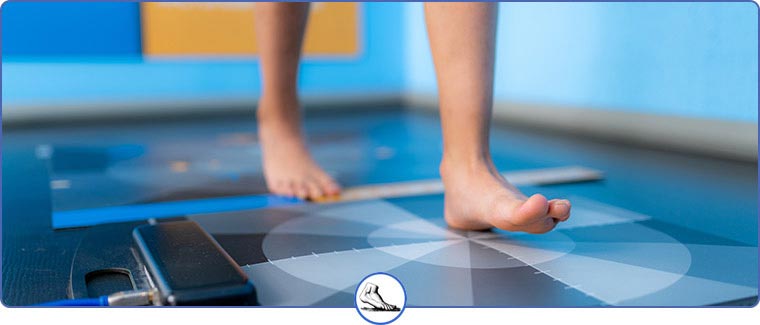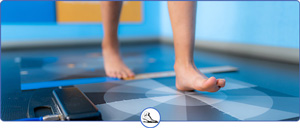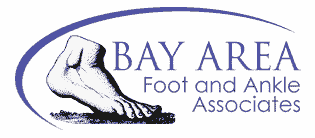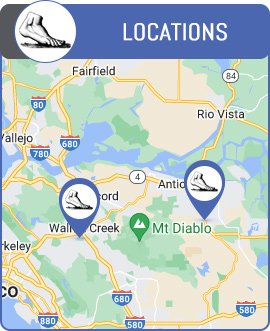Gait Analysis Specialist Q&A
Gait Analysis Specialist
A systematic study of human motion and the activity of the muscles. Gait Abnormalities can cause a lot of distress. Gait analysis examines how your foot and leg move while you’re running or walking. An abnormal gait can lead to foot issues like bunions, heel discomfort, and arch pain. Visit us for Gait Analysis, we have board-certified podiatrists Dr. John W. Scivally, DPM, and Dr. Robin K. Lie, DPM, to identify the actual cause of your foot issue and evaluate the most appropriate treatment for you. For more information, contact us or schedule an appointment online. We have convenient locations to serve you in Walnut Creek, CA and Brentwood, CA.




Table of Contents:
What is gait analysis, and could it improve your running?
What are the different kinds of gait?
How do you analyze gait?
What diseases cause gait problems?
When we talk about ‘gait’, we’re referring to the complex system of movements that you use to walk or run. These movements require your brain, bones, and muscles to work together with your heart and lungs for an optimal result. If there is an issue with any of those systems, it can affect your ability to walk, run, or move properly.
At Bay Area Foot and Ankle Associates, we are a full-service podiatry practice that offers comprehensive gait analysis to correct and improve your stride. Our team of foot and ankle specialists ensures the highest level of professional care with your safety and comfort at the forefront of every appointment. Contact us today for more information about our gait analysis services or book in online if you’re ready to see one of our podiatry experts.
A gait analysis allows a professional to see the mechanics of your running, such as your stride length and foot contact placement. This allows more insight into the structure of your run and where your joints may not be supported adequately. It also gives you the opportunity to identify areas of your running stride that are not controlled as well as they could be.
By analyzing your running form and identifying areas of improvement, speed, and endurance while running can be improved. In addition, a running gait analysis can help you detect faults in your stride that may lead to injury if left uncorrected.
There are different types of gait that affect one’s ability to move optimally. While no two people will present symptoms the same way, physicians will look for general identifying characteristics when diagnosing the type of gait you have.
The most common types are:
Antalgic gait- This kind of stride is the result of pain, causing abnormal walking patterns such as limping.
Ataxic gait- This type of stride is caused by cerebellar degeneration, which results in irregular steps that hinder your ability to walk in a straight line and a feeling of unsteadiness while you’re in motion.
Crouching gait- With these kinds of abnormal strides, your ankles, knees, and hips flex while you walk which can make it look like you’re bending over as you walk. It may also cause your toes to drag.
Lurching gait- This sort of gait is distinguished by a slow and long stride that accompanies the upper body jerking forward or backward to prevent the weight from being placed on the affected leg.
Propulsive gait (Parkinsonian gait)- This type of gait affects those who have been diagnosed with parkinsonism or Parkinson’s disease, resulting in steps that are short and fast. It is also characterized by stooping, rigid posture, and a forward bend in your head or neck.
Scissors gait- This is characterized by your knees and thighs crossing in a scissors-like pattern when you walk, resulting in steps that are slow and small. This type of gait is common in those with spastic cerebral palsy.
Shuffling gait- This form of gait is characterized by walking in a way where your feet never leave the ground. Instead, your feet drag along the floor.
Spastic gait (hemiplegic gait)- This type of gait is characterized by a stiff leg that drags of swings when you walk. It is most common among those diagnosed with cerebral palsy, multiple sclerosis, or hemiplegia.
Steppage gait (neuropathic gait)- With this type, you’ll have a high step where you raise your hip to get your leg higher than is normal. When your foot drops, it may appear to be loose and floppy. This can be caused by conditions such as muscle atrophy or a nerve injury.
Waddling gait- This type of gait creates a waddling or duck-like walk that is common in those with progressive muscular dystrophy or who have suffered from hip dislocation.
Gait is most commonly analyzed using a combination of video, computer technology, and professional insight. Video allows you and a professional to see your movements through each phase of your stride and gives you the ability to speed up or slow down the footage. The footage is often taken from multiple angles while you’re on a treadmill, giving the podiatrist a comprehensive look at every step of your gait for the best insights and analysis.
There are many medical conditions that can affect your gait and cause abnormalities to develop. Some of the most common ailments that cause stride issues are:
– Arthritis
– Bone fractures
– Calluses
– Cerebral palsy
– Corns
– Foot sores
– Hemiplegia
– Herniated disks
– Ingrown toenails
– Inner ear issues
– Joint pain
– Multiple sclerosis
– Nerve damage
– Parkinson’s disease
– Sprains
– Stroke
– Vision problems
– Warts
Whether you want to improve your speed and endurance or correct an abnormal gait caused by a medical condition, the podiatry experts at Bay Area Foot and Ankle Associates can help. Contact us at your earliest convenience for more information about our gait analysis services or to book an appointment. We have convenient locations to serve you in Walnut Creek, CA and Brentwood, CA. We serve patients from Walnut Creek CA, Brentwood CA, Concord CA, Pleasant Hill CA, Danville CA, Pittsburg CA, Antioch CA, Alamo CA, Oakley CA, and surrounding areas.
Check Out Our 5 Star Reviews


Additional Services You May Need
▸Custom Foot Orthotics
▸Ingrown Toenail Specialist
▸Traditional Podiatry Care
▸Foot and Ankle Surgery Clinic
▸Bunion Doctor
▸Corns and Calluses
▸Foot Arthritis and Joint
▸Warts
▸Video Gait Analysis
▸Athletic Taping
▸Pediatric Foot Specialist
▸Gait Abnormalities
▸Foot Dermatologist
▸Foot Deformities
▸Chronic Foot Injury
▸Diabetic Foot Specialist
▸Acute Foot Injuries
▸Podiatric Sports Services
▸Plantar Fasciitis Specialists


